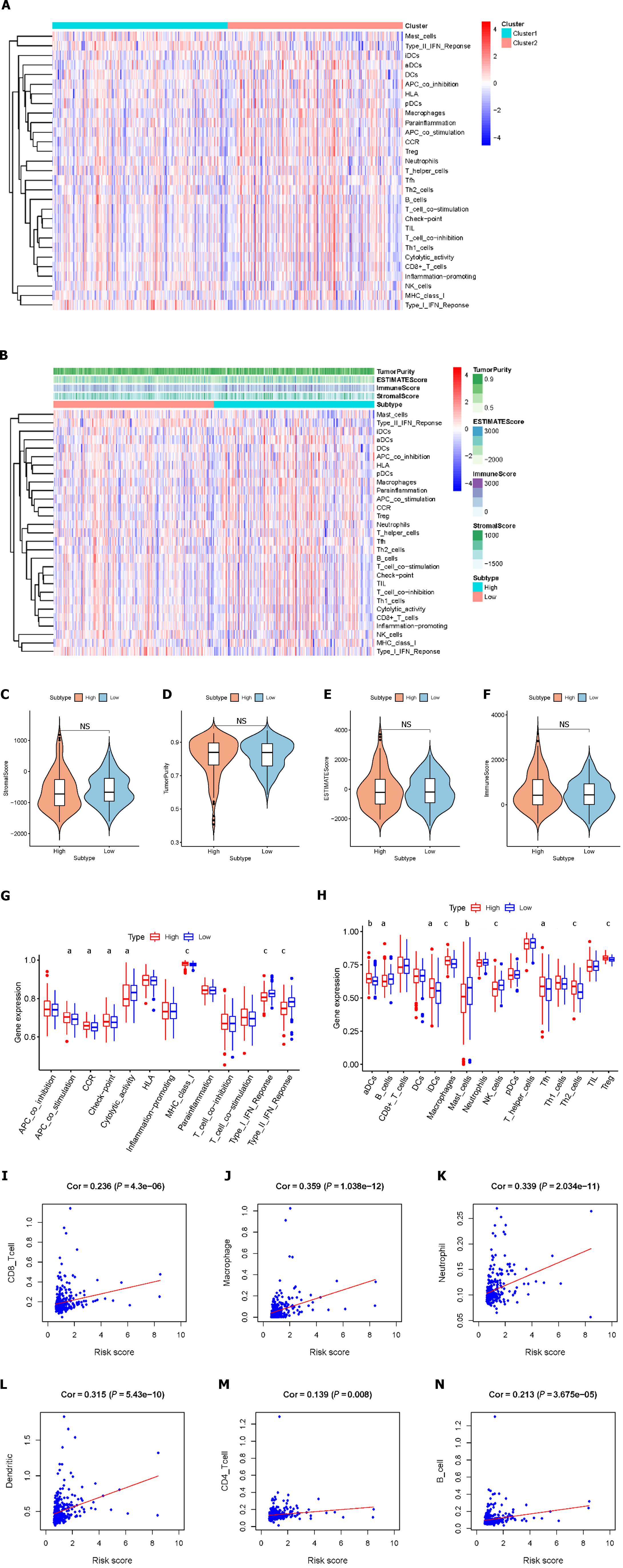Copyright
©The Author(s) 2024.
World J Gastroenterol. Feb 28, 2024; 30(8): 919-942
Published online Feb 28, 2024. doi: 10.3748/wjg.v30.i8.919
Published online Feb 28, 2024. doi: 10.3748/wjg.v30.i8.919
Figure 4 Lipid metabolism-related risk signatures are closely related to tumor environment characteristics and immune infiltration in hepatocellular carcinoma.
A: Immune-related risk signature component expression; B: The correlations between risk groups and the level of tumor immune infiltration are shown based on the immune score, stromal score, and tumor purity score; C-F: Comparison of the ESTIMATE score, stromal score, immune score, and tumor purity between the high-risk group and low-risk group; G: Comparison of immune cell abundances between the high-risk and low-risk groups of hepatocellular carcinoma (HCC) patients; H: Comparison of immune-related functions between the high-risk and low-risk groups of HCC patients; I-N: Relationships between the risk score and infiltration abundances of six types of immune cells. Cor: Correlation.
- Citation: Wang RY, Yang JL, Xu N, Xu J, Yang SH, Liang DM, Li JZ, Zhu H. Lipid metabolism-related long noncoding RNA RP11-817I4.1 promotes fatty acid synthesis and tumor progression in hepatocellular carcinoma. World J Gastroenterol 2024; 30(8): 919-942
- URL: https://www.wjgnet.com/1007-9327/full/v30/i8/919.htm
- DOI: https://dx.doi.org/10.3748/wjg.v30.i8.919









